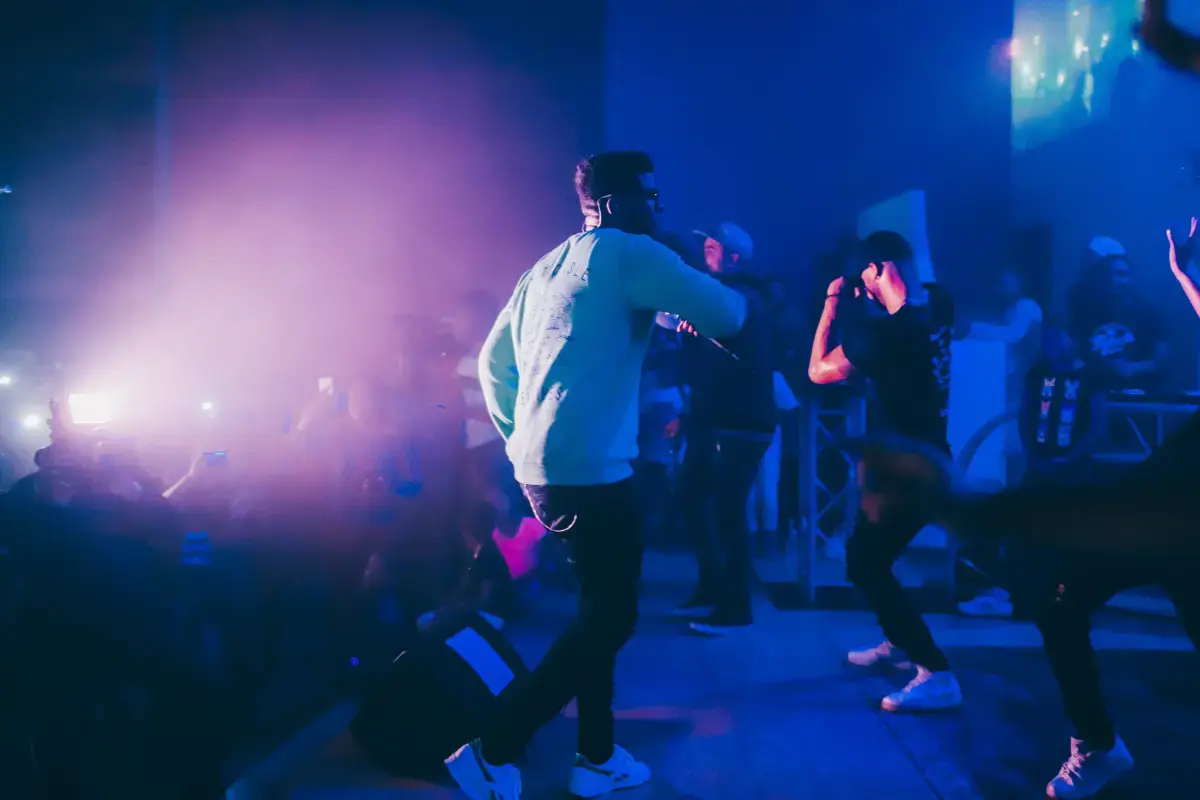
Backing Singer Job Description
What is a Backing Singer Professional?
A backing singer is a vocalist who supports the lead singer in a performance by providing harmony vocals. Backing singers may also sing lead vocals on some songs, as well as provide support for the rest of the band. Backing singers often have to harmonize with each other and with the lead vocalist, so they need to be able to match pitch and blend their voices together well. They also need to be able to keep up with the lead singers movements on stage, and cue off of them for when to come in with their harmony lines.

What does a Backing Singer Expert do?
Backing singers need to be able to project their voices over the instruments, so they typically have strong vocal chops. Many of them are trained musicians as well, who can read music and play an instrument (usually guitar or keyboard). In addition to singing, backing singers often help out with other aspects of a performance, such as dancing or providing percussion using their bodies or handheld instruments.

What are the Skills of a Backing Singer?
A backing singer needs to have good vocal skills and be able to harmonize well with the lead singer. They also need to be able to keep up with the lead singer during fast-paced songs and hold their own during slower ballads. Being a good performer is also important, as backing singers often have to engage with the audience while they are singing. Experienced backing singers will often have a repertoire of tried-and-tested harmonies that they can use for different songs. They will also be skilled at ad-libbing and improvising if necessary. It is important for backing singers to be able to read music, as they may need to learn new parts quickly.

What makes an Expert Backing Singer?
Being able to sight-read would also be an advantage. It is helpful if backing singers are familiar with different genres of music, as they may be required to sing in various styles. They should also have some knowledge of stagecraft, as this can be useful when performing live. Finally, it is essential that backing singers are reliable and professional; they need to turn up on time for rehearsals and gigs, and be prepared to work hard.

What level of Experience & Qualifications are required to be a Backing Singer?
Industry Experience: 1. Working with a variety of bands, singers and musicians in the studio recording backing vocals or live performances. 2. Understanding how to blend your voice with other vocalists and instruments on stage or in the studio. 3. Being able to read music scores, charts and lyrics quickly and accurately to follow musical arrangements as needed during rehearsals or recordings. 4. Having knowledge of different musical genres such as rock, pop, jazz, soul etc., so that you can adapt your style accordingly for each project/performance you are involved in. Training: 1. Vocal training from experienced professionals who specialize in techniques specific to backing singing including breath control, harmonies and blending voices together effectively for a more full sound overall when combined with lead vocals during performance or recording sessions . 2 Developing improvisational skills so that changes can be made easily without having any negative effect on the overall performance/recording session due to unexpected circumstances (i.e being able to make last minute adjustments). Qualifications: 1 Having some kind of certification related specifically towards backing singing – this could include qualifications such as an NVQ Level 2 Music Performance (Backing Vocals) qualification which is considered highly desirable by employers when looking for potential candidates for their projects/performances etc.. Education: 1 Having at least basic understanding of music theory – this includes being familiar with key signatures, time signatures & chord progressions which will help you understand where certain notes need placing within songs better than if you were completely unfamiliar with them . 2 Being well versed in sight-singing techniques – this involves being able to sing melodies accurately after listening just once without needing sheet music or lyrics written down beforehand .

What is the Salary of a Backing Singer?
The salary expectations of a backing singer can vary significantly depending on the level of experience and skill they possess. At the junior level, beginning singers may earn anywhere from $25 to $50 per hour or around $400-$600 for an evening’s performance. At this stage, most singers are still learning the basics and honing their craft, so it is not uncommon for them to be paid less than established professionals in the field. As a backing singer becomes more experienced and develops their skillset, salaries will typically increase accordingly. Most professional backing singers will make between $75-$125 per hour or up to $1,000+ for an entire night’s performance (depending on location). Senior-level performers with years of experience and exceptional talent may command even higher rates - sometimes reaching upwards of several thousand dollars for one evening’s work. In addition to hourly or flat fees for performances, some musicians may receive additional compensation in the form of royalties if their songs become popular hits.

What are the Working Conditions for a Backing Singer?
Backing singers typically work in recording studios, live concerts and television shows. They are usually hired by the artist or producer to provide vocal support for the lead singer on studio recordings or during a performance. In most cases, backing singers will be required to rehearse with the lead singer before a show. This is an important part of ensuring that everyone knows their parts and can coordinate them properly when performing live. It also helps build camaraderie among those involved in the production. During rehearsals, artists may run through songs multiple times until they get it just right so patience and dedication are key qualities for successful backing singers here! On tour, backing singers will travel with the rest of the band or crew from one venue to another as well as helping out with setup and sound checks prior to each performance. Backing vocals are often recorded separately from other instruments, either at home or in a studio setting depending on what’s needed by the project/artist they’re working on – this means that there could be long hours spent recording material away from home if necessary which isnt always ideal but might have great perks like being able to travel around different places while doing something you love! Backup singers must have good interpersonal skills since they interact regularly with producers, musicians and other members of their team - having strong communication abilities is essential so that everyone involved can understand each others needs clearly throughout any given project!

What are the roles and responsibilities of a Backing Singer?
Providing vocal support for the lead singer
Helping to create harmony parts
Singing backup vocals during chorus sections
Performing ad-libs and other improvised vocal parts
Attending rehearsals and recording sessions
Learning new songs quickly
Being able to harmonize with other singers spontaneously
Having a strong stage presence
Working well with others in a team environment
Being punctual and professional at all times
Maintaining a positive attitude under pressure
Keeping energy levels up during long performances
remaining focused despite distractions backstage or in the audience
staying healthy both mentally physically to ensure that their voice is always sounding its best
listening to the direction of the music producer or sound engineer and following their cues
taking care of their own voices by warming up before singing and cooling down afterwards
being prepared for any unexpected changes or hiccups that might occur during a performance
knowing when to blend in with the background vocals and when to step into the spotlight
creating interesting harmony parts that compliment the lead singer’s melody 20 always being willing to lend a helping hand backstage or onstage

Where can I find Backing Singer jobs?
- Create a profile on gigexchange and promote your Backing Singer skills to advertise you are Open to New Work Opportunities
- Ensure your Resume (or CV), or online work profile is up to date and represents your skills and experience. Ensure your reputation reflects your ability & attitude.
- Apply for Backing Singer Jobs advertised on gigexchange.
- Practise Backing Singer interview techniques to ensure you represent your personality and ability succinctly and confidently.
- Accept the job offer if the salary meets your expectations and the employer mission and purpose reflects your core values.
Jobs
What are the best job boards for Background Singer jobs?

How can I hire Backing Singer staff online for my business?
The best job board for recruiting Backing Singer experts is gigexchange.com. Advertise full-time, part-time or contract jobs to find, hire & recruit trusted, experienced and talented Backing Singer candidates near you.

Are Backing Singer roles in demand in 2026?
Backing Singer experts are still in high demand in 2026. If you are an experienced Backing Singer or looking to train and become one. The job market is looking strong for Backing Singer jobs near me.